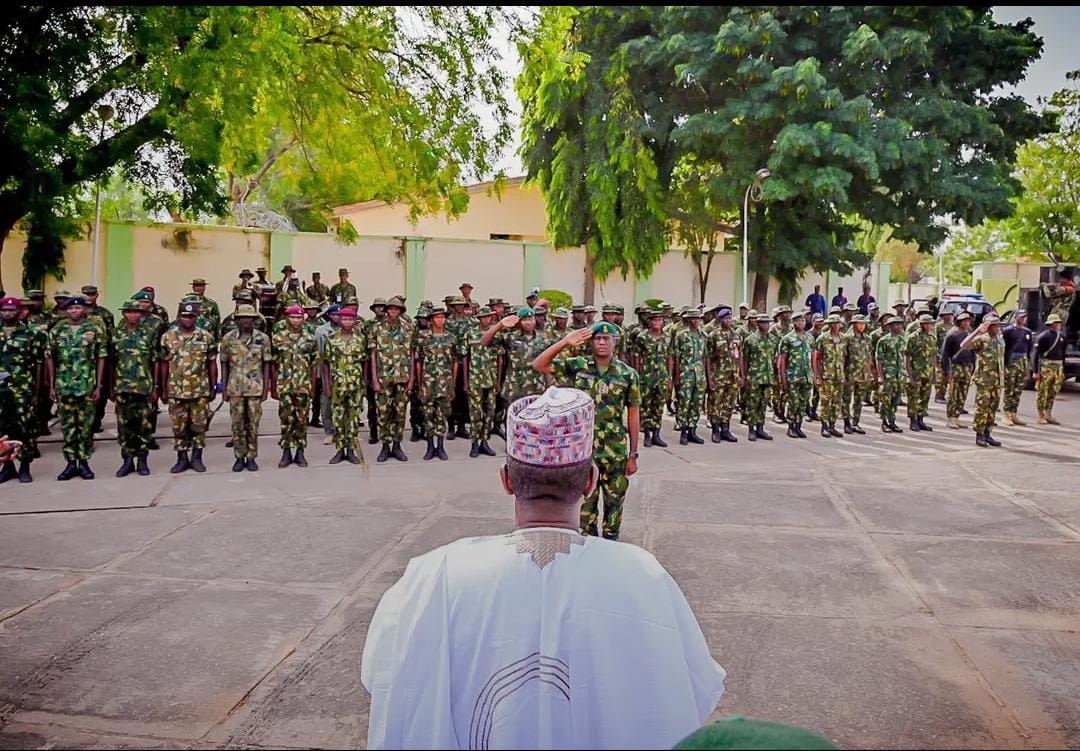Thousands thronged the APC state secretariat in Gusau on 14 November as Minister of State for Defence, Bello Mohammed Matawalle, returned to Zamfara to announce a fresh security drive and rally party support ahead of the 2027 elections.
The gathering, estimated by organisers at two million, turned the capital into a carnival of flags, chants and tightly packed supporters. Security was heavy but the mood remained upbeat as crowds filled streets, roundabouts and markets from early morning.
Addressing the rally, Matawalle announced new federal deployments to tackle the state’s persistent insecurity.
“The Defence Headquarters has deployed fresh troops, and I will be meeting them to give the marching order to deal decisively with these criminals,” he said.
He disclosed that strengthened air operations and coordinated ground offensives form the core of an intensified strategy aimed at disrupting bandit networks and restoring normalcy to rural communities.
“Zamfara will no longer bow to fear,” he told the crowd. “We are taking every necessary step to secure every community.”
But the minister also turned his focus to governance, questioning how previous administrations spent huge allocations.
“Zamfara has collected over one trillion naira. Show me what they have done with it,” he declared, drawing loud cheers.
He argued that prudent use of public funds would translate into improved security and service delivery.
The event also doubled as a political declaration, with APC leaders in Zamfara formally endorsing President Bola Ahmed Tinubu for a second term in 2027.
“The APC in Zamfara stands with President Tinubu because he stands with the Nigerian people,” Matawalle said, urging party members to maintain unity and discipline as preparations for the national polls begin.
Matawalle praised party loyalists for their recent victory in the Kaura Namoda State Assembly by-election, commending Hon Zannah and Hon Yazeed Dan Fulani for what he described as “courage and tireless effort” during the campaign.
By the end of his address, the minister had delivered a mix of firm security assurances, political consolidation and calls for transparency. Supporters dispersed with renewed confidence in the promised federal push against banditry—and in the party’s resolve heading into future contests.





